THE DEFINITIVE GUIDE FOR THE TREATMENT OF PSORIATIC ARTHRITIS
WHAT IS PSORIATIC ARTHRITIS?
Psoriatic arthritis is a type of arthritis that is seen in some patients with psoriasis. People with psoriatic arthritis may have symptoms of both psoriasis and arthritis.
{Psoriasis is a skin condition that causes red scaly rashes on places like the elbow, knees, scalp, back, etc}
Around 15-30% of people with psoriasis develop psoriatic arthritis. Most people with psoriatic arthritis have skin symptoms before joint symptoms. However, sometimes the joint pain and stiffness strike first. In some cases, people get psoriatic arthritis without any skin changes. It is an autoimmune condition meaning it happens when your immune system goes haywire and starts attacking healthy cells of the body. This condition causes widespread inflammation that affects many systems in the body from the immune system to the digestive system.
TYPES OF PSORIATIC ARTHRITIS
-
Symmetric psoriatic arthritis: This type affects the same joints on both sides of your body, so both your left and right knees.
-
Asymmetric psoriatic arthritis: This affects a joint or joints on one side of your body. Your joints may feel sore and turn red. Asymmetric psoriatic arthritis is generally mild.
-
Distal interphalangeal predominant psoriatic arthritis: This type involves the joints closest to your nails. These are known as the distal joints.
-
Spondylitis psoriatic arthritis: This type of psoriatic arthritis involves your spine. Your entire spine from your neck to your lower back may be affected. This can make movement very painful so hands, feet, legs, arms, and hips may also get affected.
-
Psoriatic arthritis mutilans: This is a severe, deforming type of Psoriatic arthritis. Psoriatic arthritis mutilans usually affect your hands and feet. It can also cause pain in your neck and lower back.
WHAT ARE THE TRIGGERS FOR PSORIATIC ARTHRITIS?
Certain things may trigger psoriasis, including:
- Injuries to the skin, like a scrape or sunburn
- Infection(mostly some preceding throat infection)
- Lack of sleep
- Dry skin
- Mental and emotional stress
- Overweight: Excess weight puts more pressure on joints that are already sore.
- Heavy drinking and smoking, are prevalent in people with psoriasis.
- Cold dry weather
Avoiding these triggers may help prevent PsA or a flare from starting.
WHAT ARE THE RISK FACTORS FOR PSORIATIC ARTHRITIS?
-
Psoriasis: About 15% to 30% of people with psoriasis get psoriatic arthritis.
- Sex: It affects men and women equally.
-
Age: You can get the condition at any age, but it usually affects people between the ages of 30 and 50.
- Family history: A family history of skin or joint disease makes you more vulnerable.
WHAT ARE THE COMPLICATIONS OF PSORIATIC ARTHRITIS?
- A small percentage of people with psoriatic arthritis develop Arthritis mutilans (a severe, painful, and disabling form of the disease).
- Over time, arthritis mutilans destroy the small bones in your hands, (especially fingers), leading to permanent deformity and disability.
- People who have psoriatic arthritis sometimes also develop eye problems such as pinkeye (conjunctivitis) or uveitis, which can cause pain and blurred vision.
WHAT ARE THE SYMPTOMS OF PSORIATIC ARTHRITIS?
- Pain, swelling, or stiffness in one or more joints
- Joints that are hot to the touch with redness.
- Frequent joint tenderness or stiffness
- Sausages like swelling in one or more of the fingers or toes
- Pain in and around the feet and ankles
- Changes to the nails such as pitting, nail thickening, or separation of the nail from the nail bed.
- Pain in the lower back (just above the tailbone).
- Scaly skin patches, which may get worse when joint pain flares up
- Flaky scalp.
Both psoriatic arthritis and psoriasis are chronic diseases that get worse over time, but you may have periods when your symptoms improve or go into remission/relapses alternating with times when symptoms become worse. Mild psoriatic arthritis is sometimes referred to as oligoarticular, meaning it affects four or fewer joints in the body. Severe psoriatic arthritis is often referred to as polyarticular, meaning it affects four or more joints.
WHAT ARE THE CAUSES OF PSORIATIC ARTHRITIS?
Psoriatic arthritis occurs when your body's immune system begins to attack healthy cells and tissue. The abnormal immune response causes inflammation in your joints as well as overproduction of skin cells. It's not entirely clear why the immune system turns on healthy tissue, but it seems likely that both genetic and environmental factors play a role.
WHAT ARE THE DIAGNOSTIC FACTORS FOR PSORIATIC ARTHRITIS?
There is no definitive test for psoriatic arthritis. The diagnosis is made mostly by symptoms evaluation and by a process of elimination.
To diagnose PsA, the doctor has to rule out other causes of arthritis, such as RA and gout, with the help of some imaging and blood tests.
Imaging tests :
- X-rays: These check for inflammation and damage to bones and joints. This damage is different in PsA than it is in other types of arthritis.
- MRIs: These images can help your doctor check for joint, tendon, or ligament damage.
- CT scans and ultrasounds: These can help determine how advanced PsA is and how badly the joints are affected.
Blood tests for these substances help assess any inflammation present in your body:
- C-reactive protein: This is a substance your liver produces when there’s inflammation in your body.
- Erythrocyte sedimentation rate(ESR): This only reveals how much inflammation is in your body not the cause of it.
- Rheumatoid factor (RF): Helps to rule out rheumatoid arthritis.
- Joint fluid: Checked for the presence of any uric acid crystals, to rule out gout.
- Red blood cells. A low red blood cell count is common in people with psoriatic arthritis.
WHAT ARE THE CONVENTIONAL TREATMENT OPTIONS AVAILABLE FOR PSORIATIC ARTHRITIS?
Conventional treatment includes the use of NSAIDS, biologics, immunosuppressants, and light therapy. Joints that have been severely damaged by psoriatic arthritis are sometimes replaced with artificial prostheses made of metal and plastic. Homeopathic medicines are the best treatment for psoriatic arthritis without side effects and steroids.
MANAGEMENT OF PSORIATIC ARTHRITIS
-
Add exercise to your daily routine: Keeping your joints moving can ease stiffness.
Biking, walking, swimming, and other water exercises are gentler on the joints than high-impact exercises like running or playing tennis.
-
Relieve stress: Tension and stress can make arthritis flares even worse. Meditate, practice yoga, or try other stress-relief techniques to calm your mind and body.
-
Use hot and cold packs: Warm compresses and hot packs can ease muscle soreness. Cold packs can also reduce pain in your joints.
-
Consider natural supplements and spices: Omega-3 fatty acids have anti-inflammatory properties. These healthy fats, found in many supplements, reduce inflammation and stiffness in joints.
Turmeric also has anti-inflammatory action and so may help reduce inflammation and psoriatic arthritis flare-ups.
HOMOEOPATHIC MANAGEMENT OF PSORIATIC ARTHRITIS
Homeopathic treatment works very efficiently for people suffering from psoriatic arthritis. Some homoeopathic medicines that can be given in cases of PsA are rhus tox, rhus venerat, urtica urens, ledum pal, medorrhinum, syphilinum, thuja occidentalis etc. It is to be noted that these remedies are to be taken after consulting a registered homeopath only.
Homeopathic medicines are quite effective in the treatment of psoriasis and psoriatic arthritis without steroids and side effects.
DO’S AND DONT’S FOR PSORIATIC ARTHRITIS
DO’S
- get medical help as soon as symptoms appear
- get enough rest and sleep
- do low-impact exercise, unless it worsens symptoms
- following a healthy diet
- limiting alcohol intake
- limiting stress
DONT’S
- Quit smoking and restrict alcohol intake
- avoid scratching scaly areas of skin.
- Avoid food items that will make you obese.
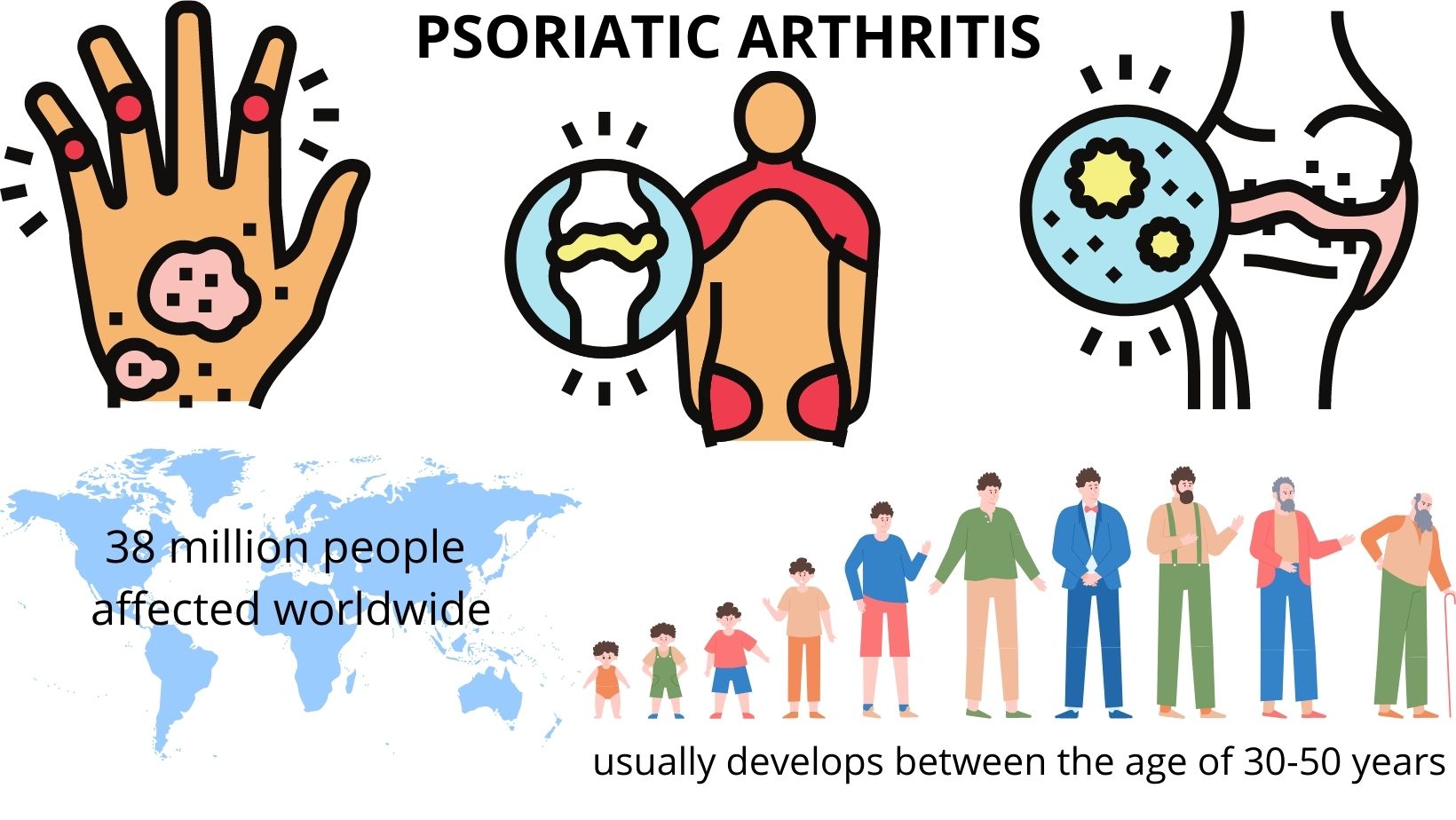
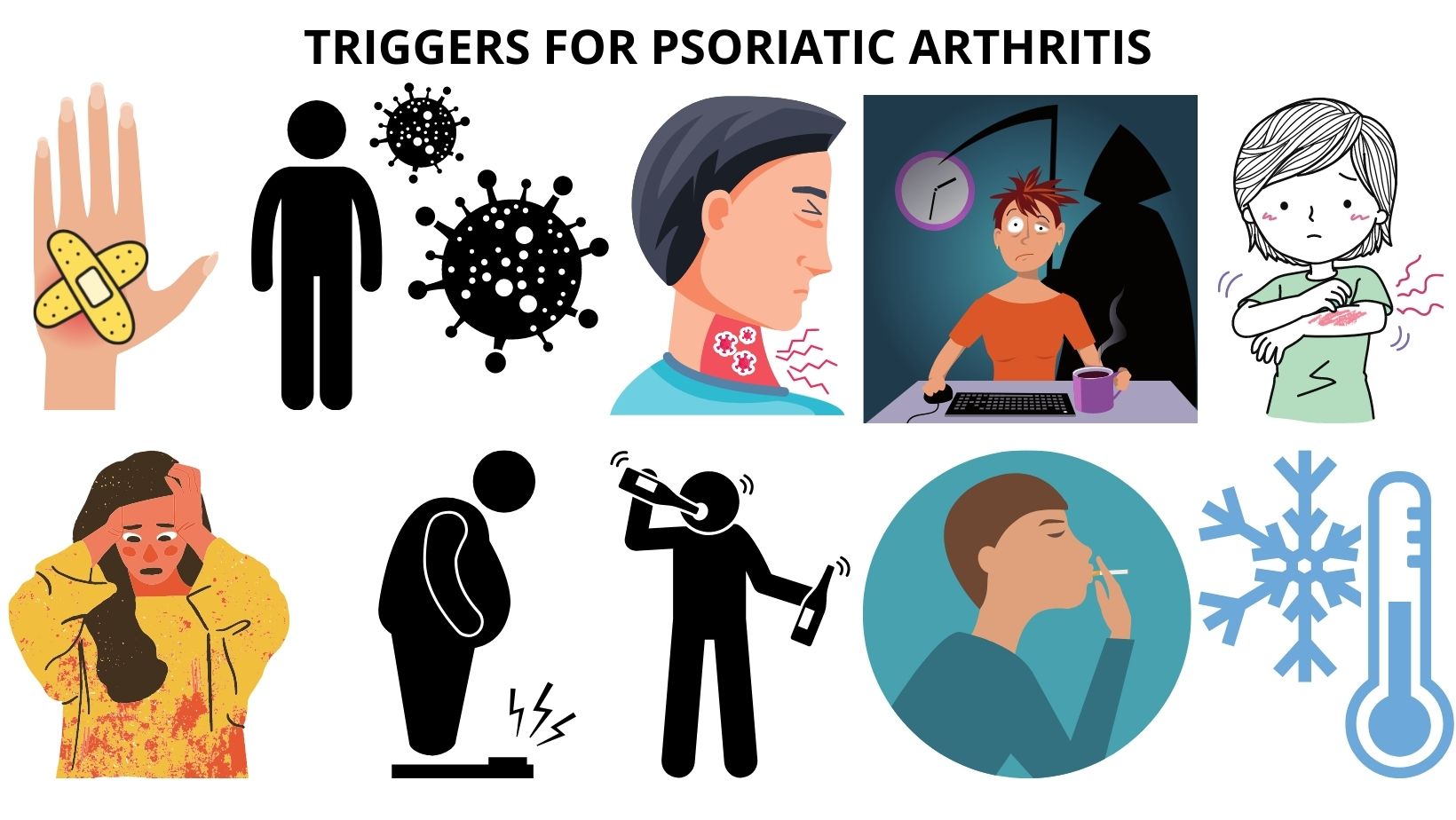
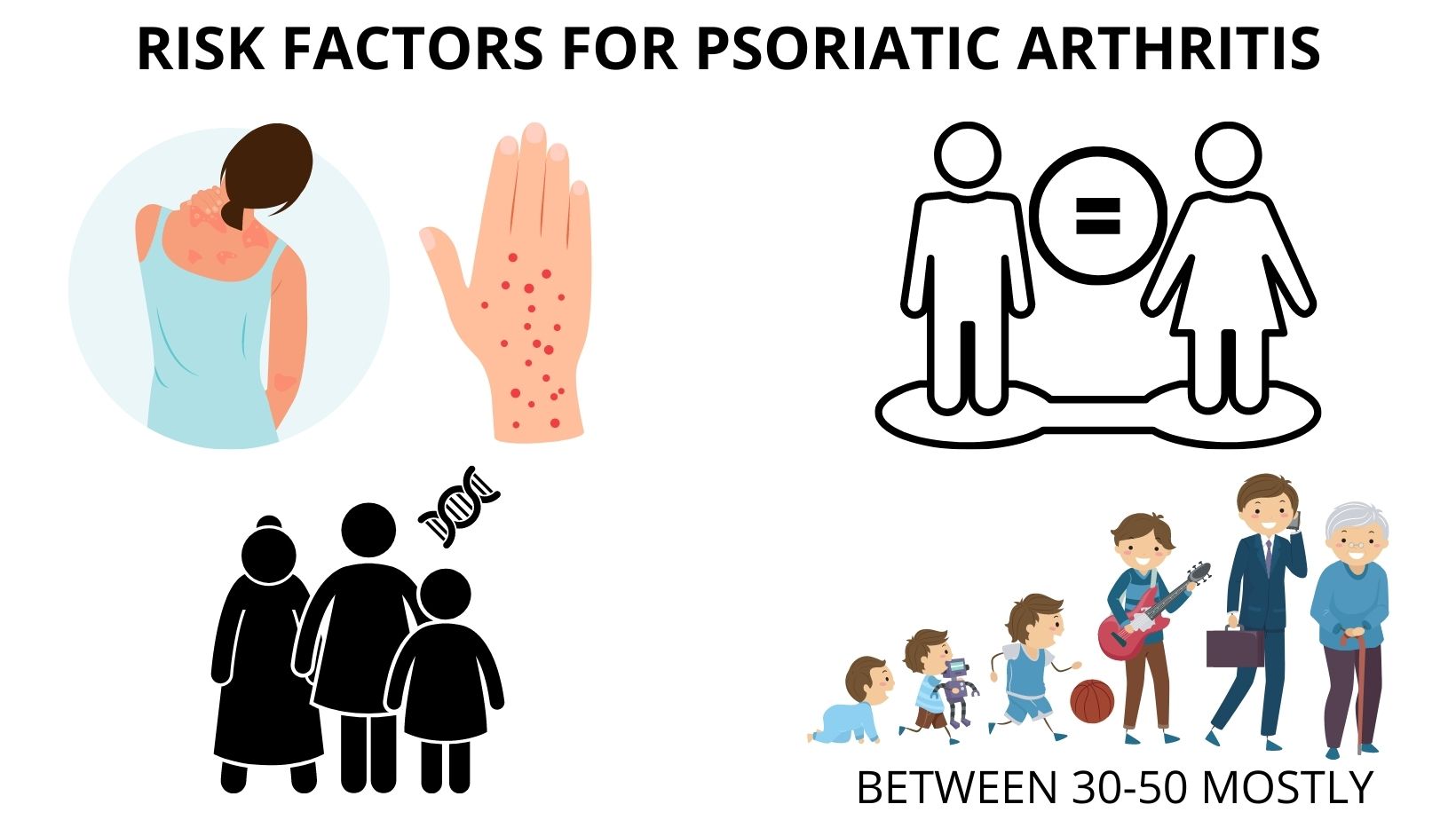
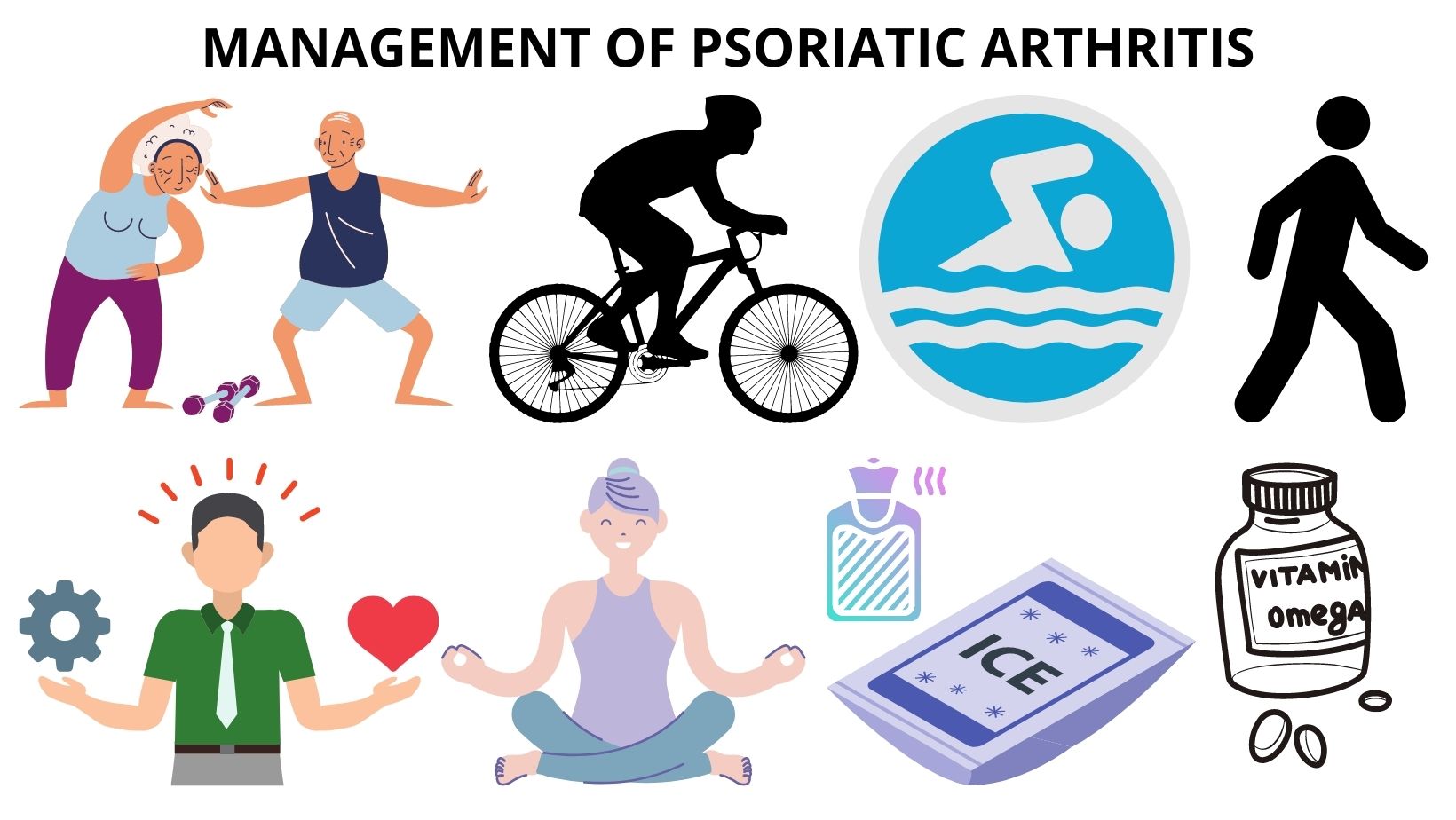
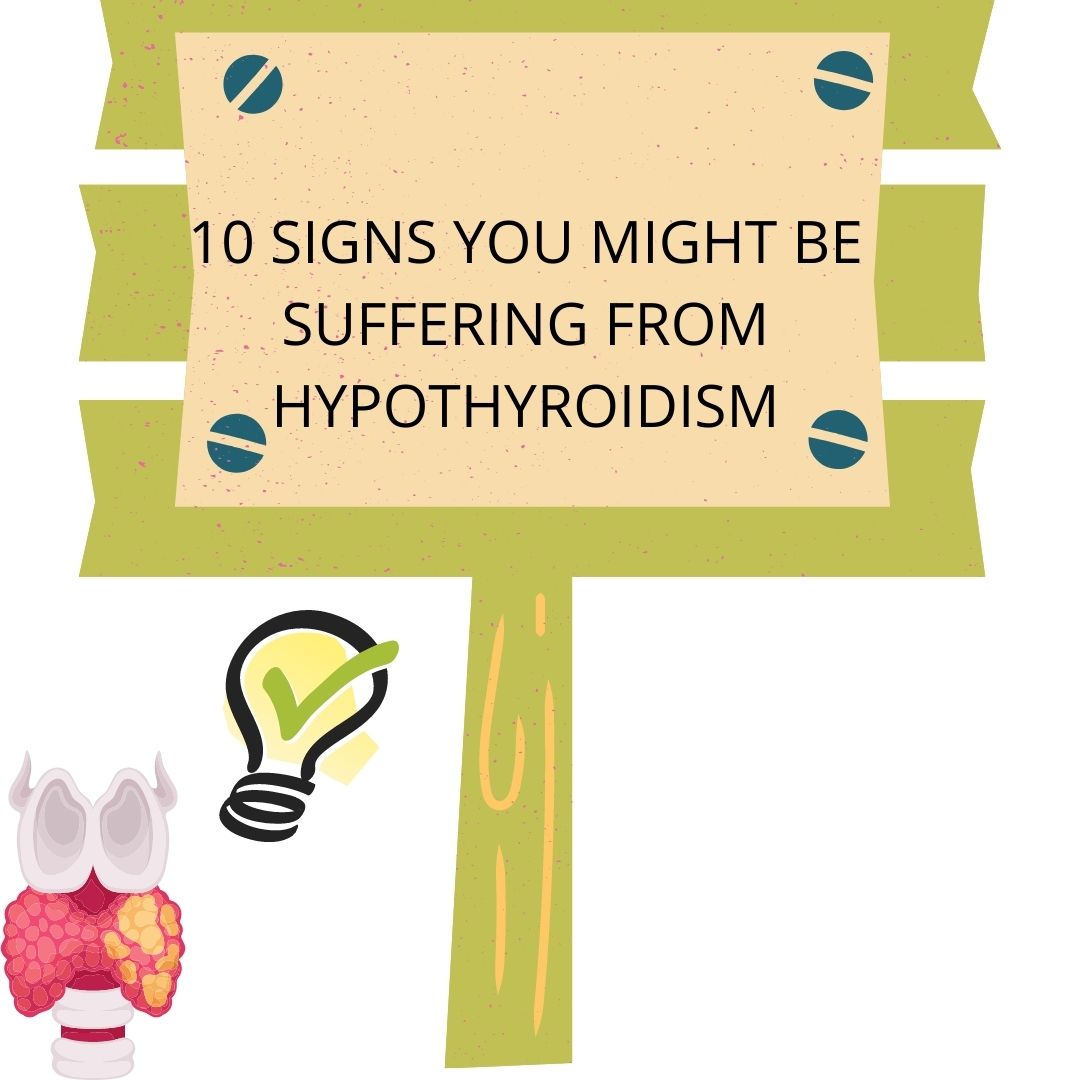
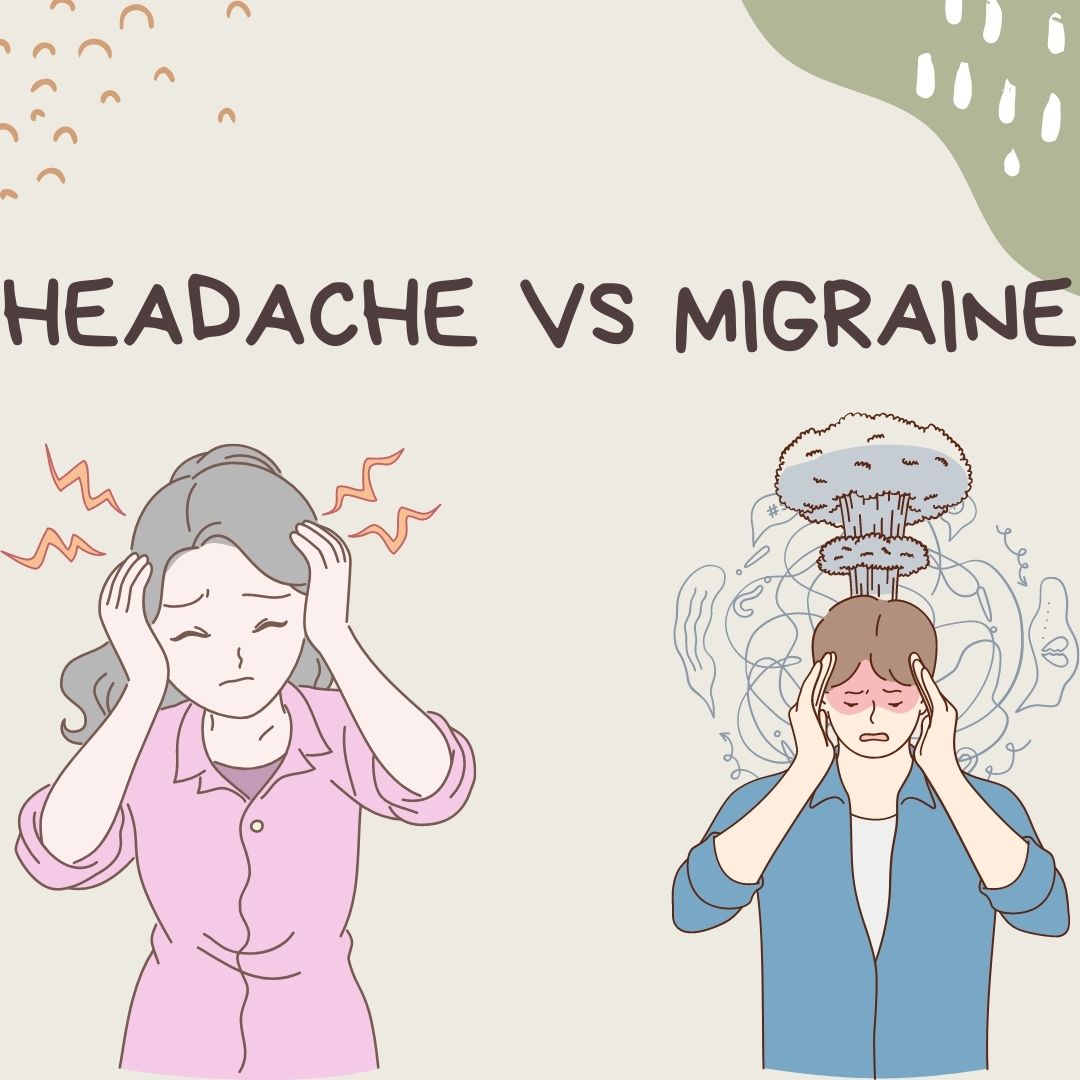
Comments
We have received your comment , Thank You !